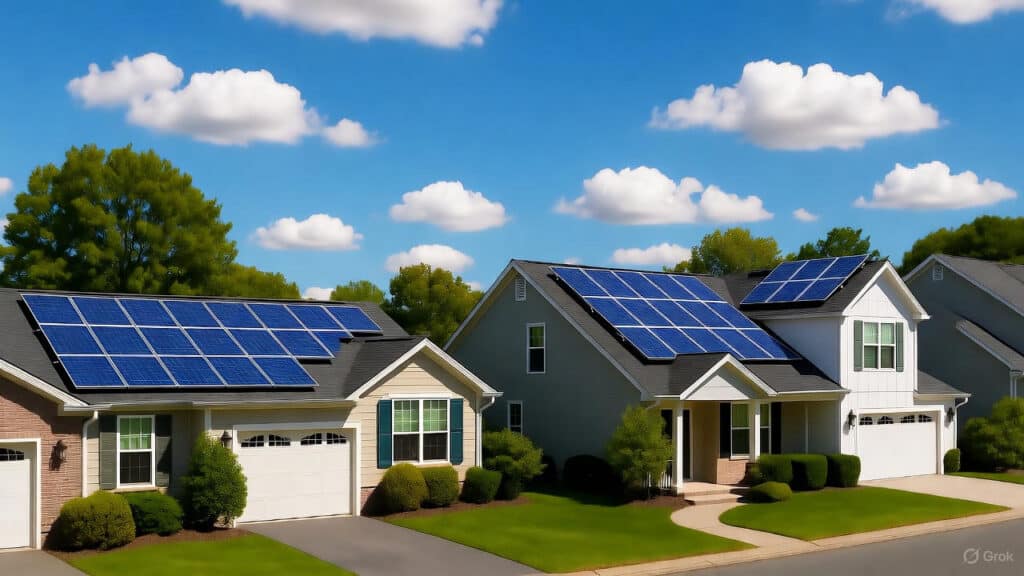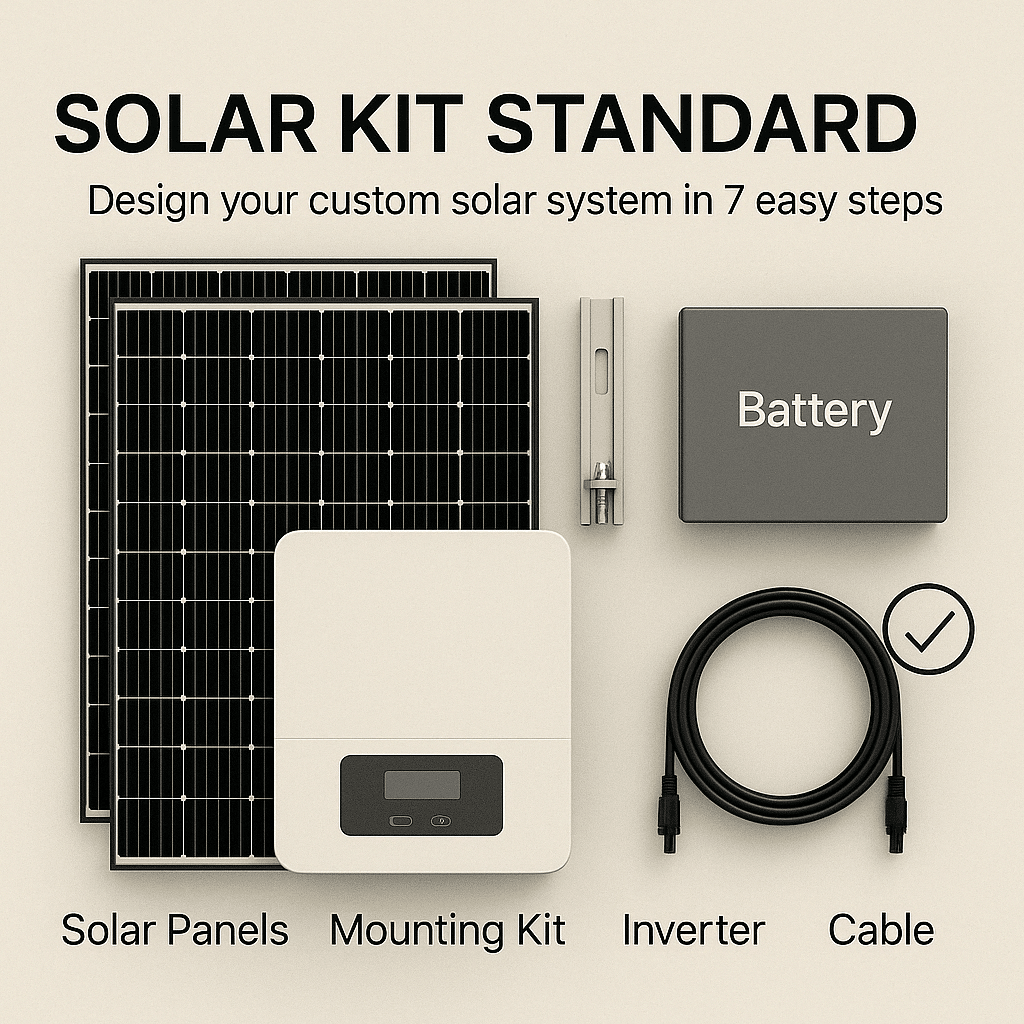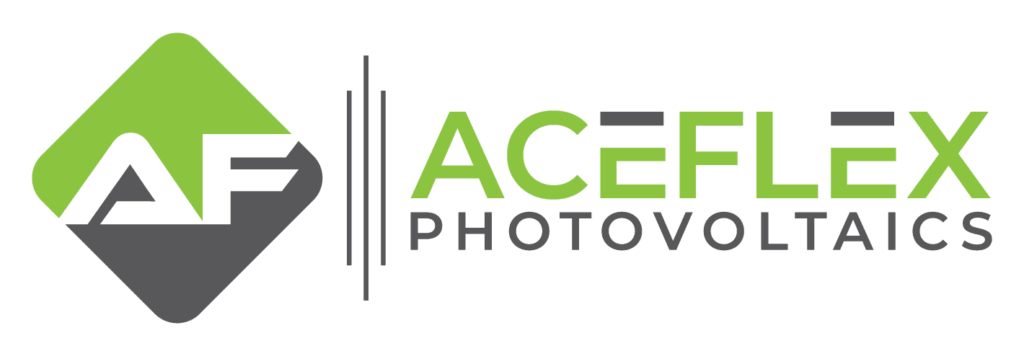📦 Fast Delivery – Order Now!
💸 Shop Safely – 100% Money-Back Guarantee
👨🔧 Lifetime Customer Support
📦 Fast Delivery – Order Now!
💸 Shop Safely – 100% Money-Back Guarantee
👨🔧 Lifetime Customer Support
Solar energy is booming in Virginia. Between rising electricity rates, strong state policies, and growing homeowner interest in energy independence, more Virginians are choosing to produce their own power. Whether your goal is to lower monthly bills or gain protection from grid outages, installing solar in Virginia has never been more accessible — especially with modern DIY-friendly equipment and generous federal incentives.
In most cases, yes — Virginia is an excellent state for solar. The Commonwealth receives an average of 4.5 to 5 peak sun hours per day, which is comparable to many other successful solar states. Combined with electricity prices around $0.14–$0.16 per kWh and rising, solar offers long-term protection against inflation.
Beyond savings, homeowners also benefit from:

Virginia homeowners benefit from both federal and state-level incentives, making installation significantly more affordable.
Federal Solar Tax Credit (ITC):
Homeowners can claim 30% of the total system cost — including equipment, labor, and even battery storage — as a tax credit.
State-Level Benefits Include:
Net metering allows you to spin your meter backward when your system produces more power than you use. That excess energy is credited to your account and used when the sun isn’t shining.
Example:
A Virginia homeowner with a 6 kW system might overproduce during summer afternoons. Instead of wasting that power, it offsets nighttime usage — significantly lowering or even eliminating the bill.
The average installed cost of residential solar in Virginia ranges between $2.50 and $3.25 per watt. That means:
| System Size | Gross Cost | Federal Credit (30%) | Net Cost |
|---|---|---|---|
| 4 kW | $10,000 | -$3,000 | $7,000 |
| 6 kW | $15,000 | -$4,500 | $10,500 |
| 10 kW | $25,000 | -$7,500 | $17,500 |
At AceFlex, we support homeowners who want high-quality components without inflated pricing. Whether you need panels, inverters, solar kits, or battery-ready configurations, we supply the same Tier-1 equipment used by professional installers — at wholesale-friendly rates.

🔆 Standard Solar Kit – Your Custom Solar System in 7 Guided Steps
Design your solar setup with full flexibility and pre-configured mounting: choose solar panels, inverter, battery, mounting kit, wiring essentials, combiner, and accessories – all step by step and fully compatible.
✅ Includes mounting material from K2 Systems for standard layouts
✅ Choose only the components you need
✅ DIY-friendly and pre-checked for compatibility
✅ 🎁 Battery discount included when bundled
Thanks to strong net metering and the 30% tax credit, most Virginia homeowners see a payback period of 8–12 years, depending on system size and energy usage. With equipment lasting 25+ years, that means at least 15 years of nearly free electricity after break-even.
| System Type | Pros | Cons | Best For |
|---|---|---|---|
| Grid-Tied (Net Metering) | Lowest cost, fastest ROI | No backup during outages unless paired with battery | Most homeowners |
| Grid-Tied with Battery Backup | Power during blackouts, full energy control | Higher upfront cost | Energy resilience |
| Off-Grid | Full independence | Requires larger system + storage | Remote properties |
AceFlex offers battery-ready components for those planning future expansion — you can start grid-tied and add storage later.
Thanks to Virginia’s Solar Freedom legislation, HOAs cannot unreasonably block solar installations. They may request preferred placement, but they cannot forbid rooftop systems outright.
Permits vary by county, but most standard residential installations require:
DIY-friendly permitting is possible — many AceFlex customers simply hire an electrician to finalize the interconnection.
Virginia is on track to quadruple its solar capacity over the next decade, driven by state policies like the Virginia Clean Economy Act and growing consumer demand for clean energy. Utilities are investing heavily in community solar programs, allowing homeowners who cannot install rooftop panels to participate and receive energy credits, expanding access to solar for renters and shaded properties.
At the same time, virtual power plants (VPPs) are emerging, where homes with solar panels and battery storage collectively support the grid and can earn compensation. This means solar is evolving from a tool for reducing electricity bills to a long-term investment opportunity, offering homeowners both energy independence and the potential to profit from their clean energy systems.

Whether you’re exploring grid-tied systems, planning a battery backup setup, or building your own DIY solar kit, AceFlex is here to support you with:
👉 Looking to source high-quality solar parts in Virginia? Contact us or explore our product lineup.

Yes, solar panels in Virginia are a worthwhile investment due to strong net metering policies, the 30% federal Investment Tax Credit, and average payback periods of 8–12 years. With panels lasting 25–30 years, homeowners can enjoy over a decade of nearly free electricity, significant savings on utility bills, and increased property value.
“Free” solar panels typically refer to power purchase agreements (PPAs) or leases where no upfront cost is required, but you pay for the electricity generated at a fixed rate. While these options exist in Virginia, they may result in lower long-term savings compared to purchasing a system outright with incentives like the federal ITC.
Martin Lewis, a UK-based financial expert, has no specific commentary on Virginia’s solar market, as his advice focuses on the UK. However, he generally emphasizes evaluating payback periods, incentives, and energy savings, which aligns with Virginia’s favorable conditions for solar adoption.
The average cost for a residential solar system in Virginia ranges from $15,000 to $25,000 before incentives, depending on system size (5–10 kW). After applying the 30% federal ITC and potential local exemptions, costs can drop significantly, often to $10,000–$17,500.
Yes, Virginia offers robust incentives, including the federal 30% ITC, state property tax exemptions in many counties, and net metering programs through utilities like Dominion Energy. These incentives reduce upfront costs and accelerate the payback period for solar installations.
Virginia receives an average of 4.5–5 peak sun hours daily, making it well-suited for solar energy production. This consistent sunlight ensures efficient energy generation for both residential and commercial solar systems throughout the year.
While DIY solar installation is possible, it’s not recommended due to Virginia’s permitting requirements, electrical safety standards, and the need for professional expertise to maximize efficiency and qualify for incentives. Hiring a certified installer ensures compliance and optimal system performance.
Solar panels typically come with 25-year warranties and can last 30 years or more with proper maintenance. Virginia’s climate, with moderate temperatures and minimal extreme weather, supports long-term durability for solar systems.
AceFlex is one of the leading online retailers of renewable energy products and offers a wide range of solar products. We work with well-known manufacturers and wholesalers and can offer you cost-effective products in the field of photovoltaics so that you too can contribute to the energy transition.
Looking for an experienced team for planning your photovoltaic system without the hassle of doing it yourself? We are your trusted partner, offering comprehensive nationwide solutions. We provide expert consultation and supply of both photovoltaic systems and storage units tailored to your specific needs.
© 2025 Aceflex All Rights Reserved. Design by Media Pantheon, Inc.